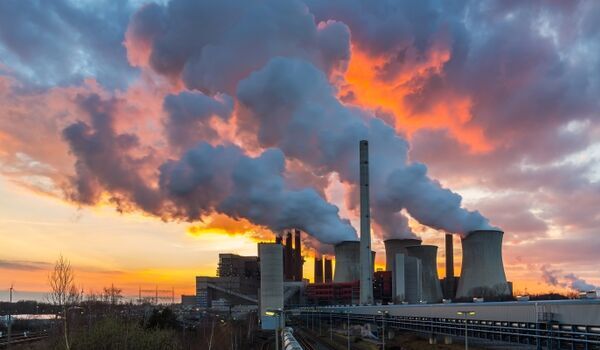How tackling climate change can affect work and industrial change
- Centre for Employment Relations, Innovation and Change

Tackling the challenges of climate change calls for dramatic changes in the way societies produce and consume. Nevertheless, there is a huge gap in studies investigating the relationship between climate change action and society, in particular how it will affect job prospects, working conditions, job skills and livelihoods.
Debate about climate change in social sciences takes place alongside the academic mainstream linking it to debates around the economy of the common good, de-growth and potential avenues of post-capitalism.
Studies in these areas show that even small-scale changes with experimental forms of producing, consuming and economising differently will have a positive impact on climate change. For example, the following can all contribute to questioning the dominant form of high carbon capitalist economy:
- Barter exchange - when goods or services are exchanged for other goods/services (for example, the Little Free Library is an initiative where members of the community can take and leave a book. There are a number of these painted book boxes throughout Leeds.)
- Free stores - where excess or unwanted items are given away for free (such as The Real Junk Food Project which uses supermarket food waste to create meals for others)
- Repair cafes - meeting places where people come together to help each other fix items
- Common-based peer productions - when residents collectively produce, maintain and share goods/services.
While the scale of these initiatives is rather small, they are a necessary first step to try out alternative models ahead of a larger scale transformation.
To reach climate targets though, it is vital that other groups engage in climate action more thoroughly. Most importantly, businesses need to put ecological sustainability above profit margins and invest in a green economy and green innovations that reduce carbon emissions.
Recent research has found that work creates as much as 80% of the greenhouse gas emissions produced by human activity in developed countries. One of the radical claims to combat this is to reduce the number of hours we work per week to slow down production.
Governments play a role offering incentives by reforming their taxation and innovation policies; subsidies for solar panels on residential roofs have been a good example in the UK, or subsidising electric cars.
Social partners also play a key role in implementing necessary policy reforms. Notably, some trade union bodies have actively promoted more blue-green alliances between labour and environment protection advocacy groups and have called for a “just transition”. In other words, emphasising the importance of considering how transition towards a low carbon economy will affect jobs.
These alliances argue for just transitions and offer visions of alternative employment and lifestyles for workers working in carbon-intensive economic sectors that need to be restructured. However, just to look at the example of the UK, just transition is absent from the government’s industrial strategy. Also in most countries, the engagement with climate change is rather at the level of rhetoric; not many unions have developed concerted action. There are some notable exceptions of positive examples that are emerging such as the Canadian AWC (Adapting Canadian Work and Workplaces) that develops tools to “green” the workplace and work itself, and the IG Metall initiative (metalworker’s union in Germany) that offers a fund for works councils to develop low-carbon product innovation in collaboration with engineers.
Our research network on Work, Labour and Climate Change is looking to stimulate debate on this topic and consider ideas for how to manage a just transition. We are bringing together expertise across the University of Leeds to help deliver ideas for how society, labour and businesses can produce and live in a carbon neutral environment and in a more ecological sustainable way more generally.
It is important that we have members from a variety of industries to stimulate the dialogue around how climate change can be mitigated, not just those that are under the most scrutiny such as the energy sector, but also those working in production (eg bakers) or services (eg teachers and those in Higher Education) and those dealing with the effects of climate change (eg the fire brigade).
To find out more information about the project, visit the webpage. If you would be interested in joining the network, please contact research.lubs@leeds.ac.uk.
Contact us
If you would like to get in touch regarding any of these blog entries, or are interested in contributing to the blog, please contact:
Email: research.lubs@leeds.ac.ukPhone: +44 (0)113 343 8754
Click here to view our privacy statement. You can repost this blog article, following the terms listed under the Creative Commons Attribution-NonCommercial-NoDerivatives 4.0 International licence.
The views expressed in this article are those of the author and may not reflect the views of Leeds University Business School or the University of Leeds.

